Inspiring Germany
Neighbourhood culture: these 8 cities are bursting with life
Art museums, culinary delights, church backdrops: all perfectly fine reasons to visit a city. But the pull becomes even greater when you let yourself drift – take a stroll, visit cafes, go out. Some districts are particularly well suited to this.
Berlin: the city that never sleeps
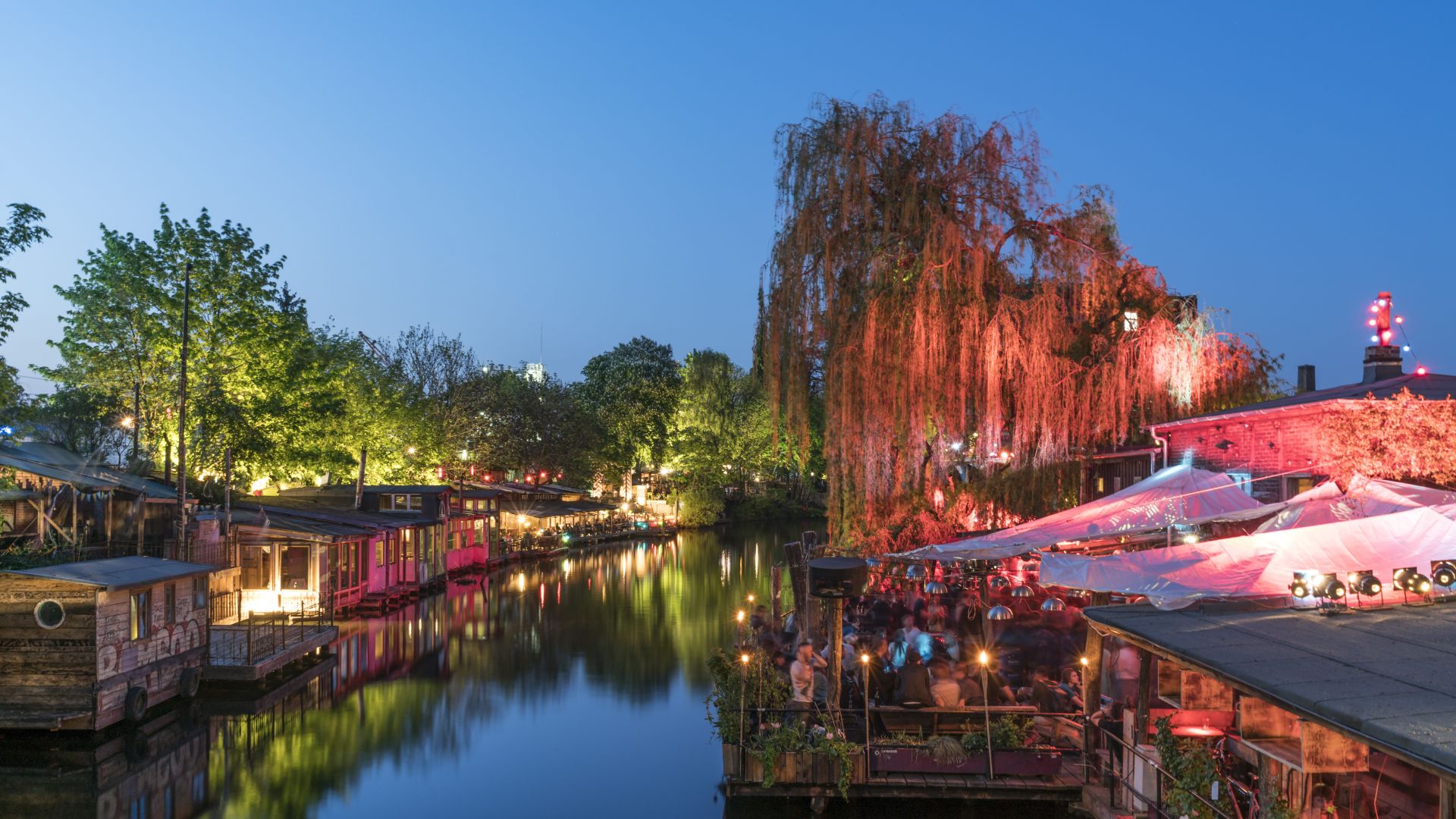 Berlin: Clubs on the Spreekanal, Freischwimmer
©Lookphotos (travelstock44)
Berlin: Clubs on the Spreekanal, Freischwimmer
©Lookphotos (travelstock44)
Is there a more colourful, laid back, unique city (not to mention party capital) than Berlin? Hardly. The lack of a curfew, for one! The numerous world-famous clubs around the Holzmarkt and Ostbahnhof! Nearby, Friedrichshain-Kreuzberg is the epitome of multiculturalism and alternative lifestyles, with former industrial buildings brimming with pop-up culture. And a true creative epicentre has developed in Neukölln – with galleries, cafes, street food markets and concept stores.
Hamburg: lots of districts, lots of fun
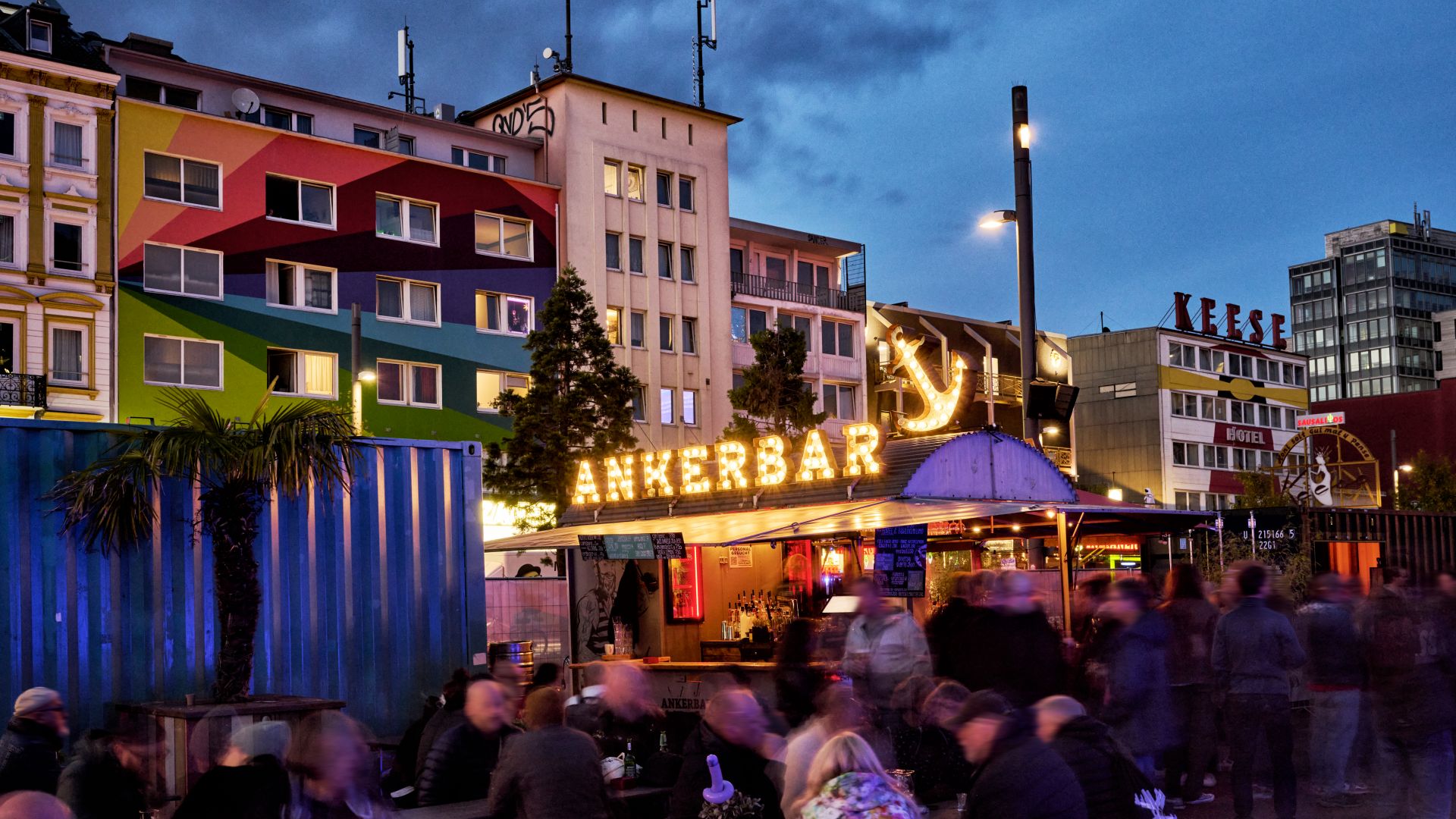 Hamburg: Nightlife on the Reeperbahn in St. Pauli
©DZT (Florian Frykowski)
Hamburg: Nightlife on the Reeperbahn in St. Pauli
©DZT (Florian Frykowski)
The Reeperbahn is legendary, but St Pauli has much more to offer: theatres, galleries, cabarets. However, you're more likely to find a different scene in the Schanzenviertel, where bars, cafes and vintage stores tend to attract a more alternative crowd. In the Karoviertel next door, there are also stores beyond the mainstream – and plenty of electronic music. Ottensen has an urban-casual feel. Between the Elbstrand beach and the factory buildings, 'Little Paris' surprises visitors with quaint markets and bistros.
Cologne: even when Carnival ends, the good vibes remain
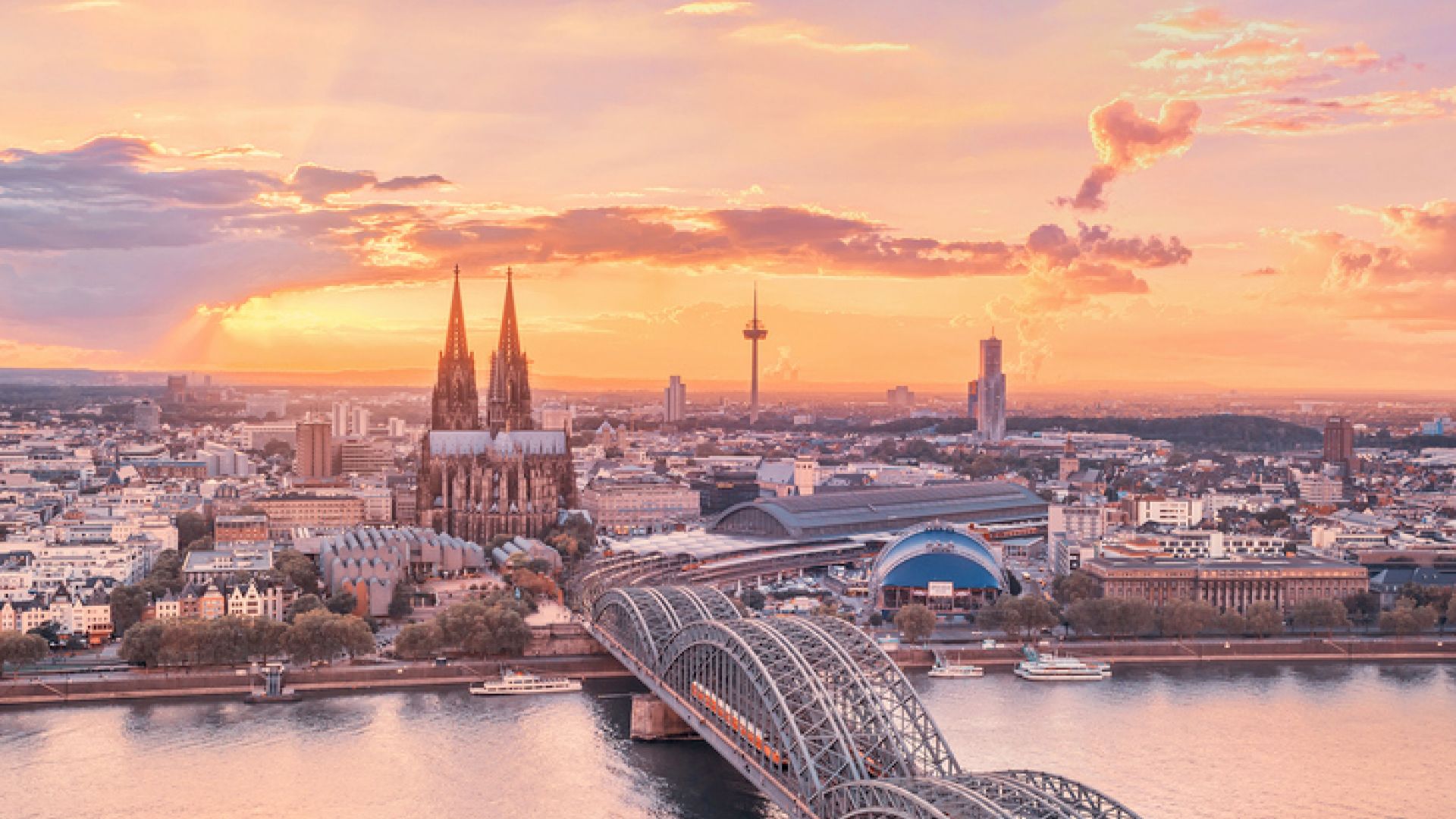 Cologne: sunset
©Getty Images (Matthias Haker Photography)
Cologne: sunset
©Getty Images (Matthias Haker Photography)
It's a classic student quarter: in the day, people study hard at university, and when night falls they hit the bars. This is also the case in the Kwartier Latäng, especially on Zülpicher Strasse with its trendy clubs, Kölsch bars and cult pubs. The hip bars in the Belgian Quarter, which has become a shopping hotspot thanks to its boutiques, are more upmarket. In Ehrenfeld , on the other hand, artists have set up exciting studios in rows inside derelict industrial buildings.
Leipzig: history, zeitgeist and dozens of bars
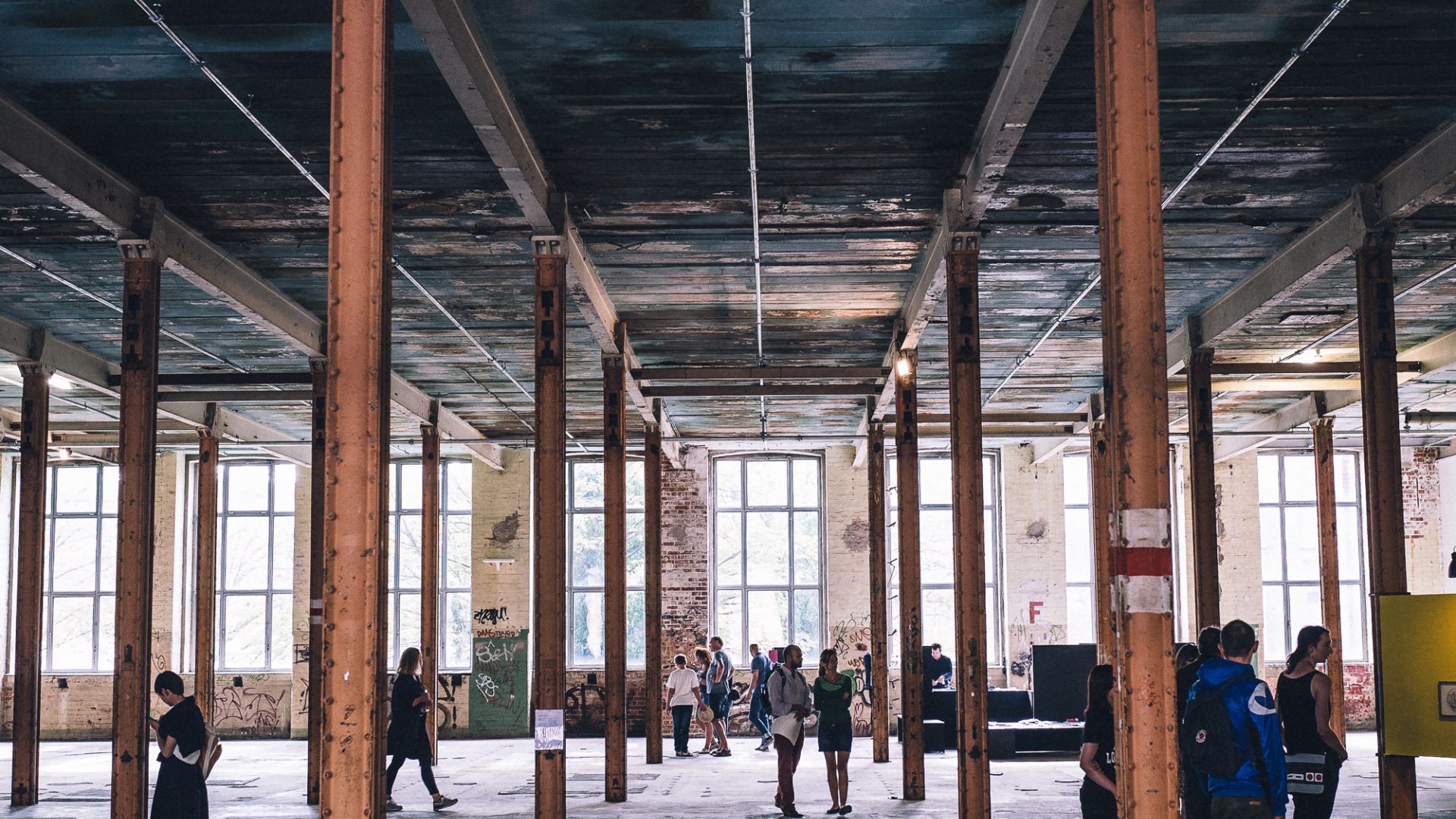 Interior view of the Plagwitz cotton mill in Leipzig
©Leipzig Tourismus und Marketing GmbH (Daniel Koehler)
Interior view of the Plagwitz cotton mill in Leipzig
©Leipzig Tourismus und Marketing GmbH (Daniel Koehler)
The fact that Leipzig is often referred to as 'Hypezig' is due to its mix of urban culture, historic architecture and alternative lifestyles. And its bustling neighbourhoods, such as Plagwitz. In the former working-class district, factories have been transformed into residential lofts, galleries, clubs and restaurants. Or Connewitz, with its affordable rents and cool bars. Leipzig's nightlife district par excellence remains the Südvorstadt and its 'party aorta', Karl-Liebknecht-Strasse, affectionately known as 'Karli'.
Magdeburg: the city on the Elbe undergoing exciting change
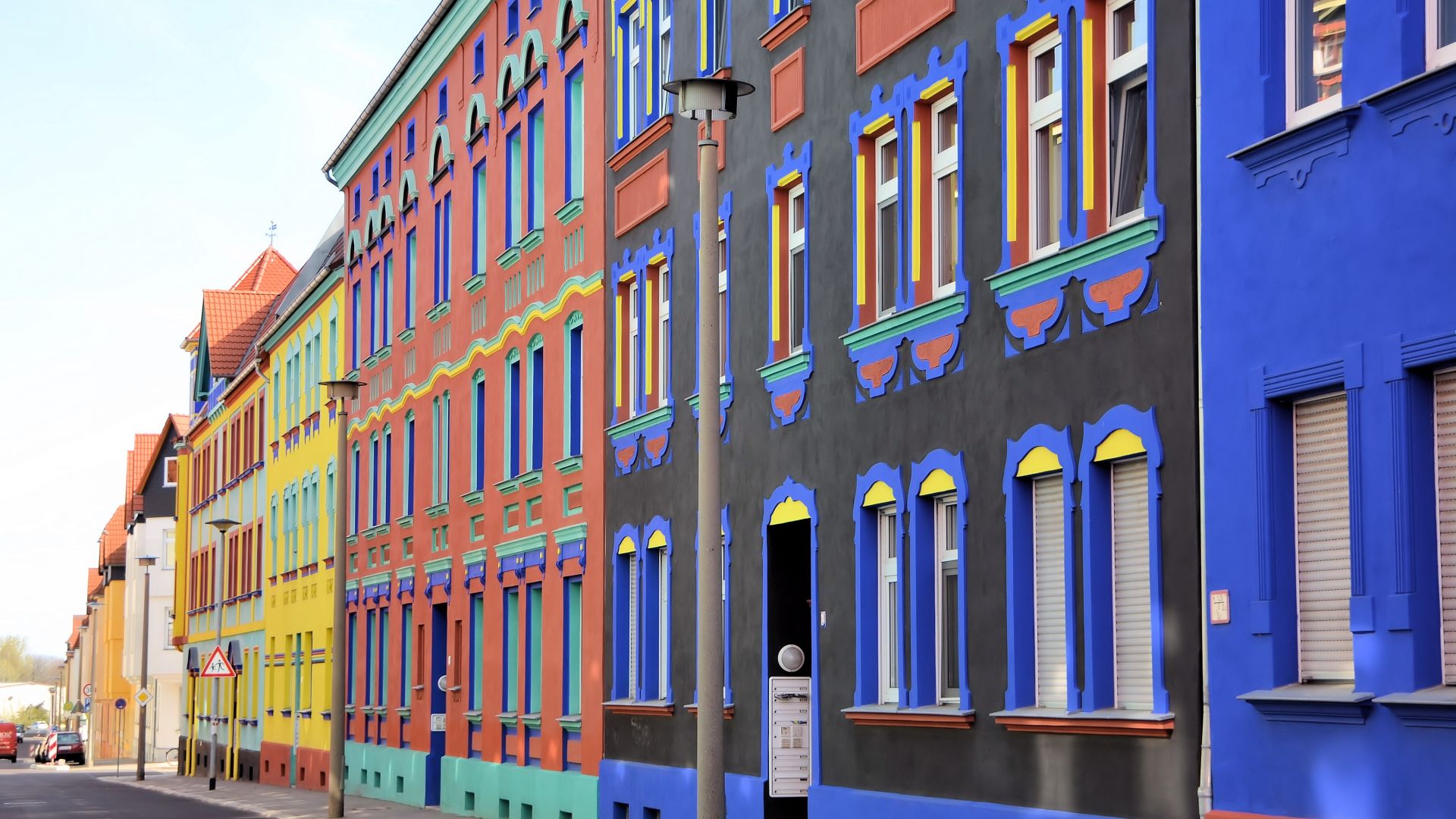 Magdeburg: Bunte Häuserfassaden
©gettyimages (Heiko Küverling)
Magdeburg: Bunte Häuserfassaden
©gettyimages (Heiko Küverling)
Around the Hasselbachplatz, the heart of Magdeburg's nightlife, a wide range of alternative cafes, clubs and bars await. More trendy bars and concert stages can be found in Buckau, once the centre of the city's heavy industry and now home to a young and lively art and culture scene. Stadtfeld is also a top choice, with its combination of old and new, creativity and nightlife.
Stuttgart: a city bubbling with party energy
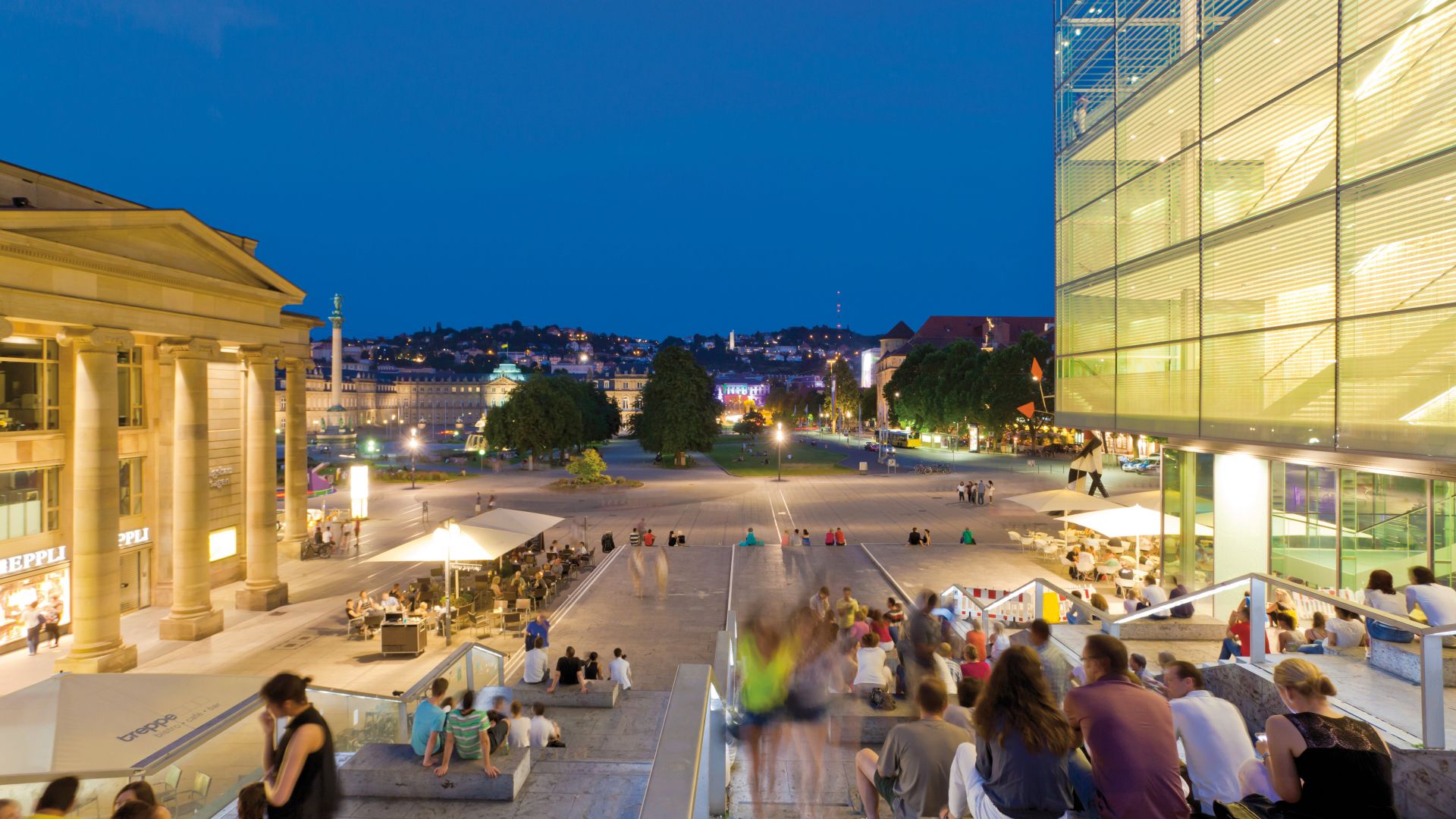 Stuttgart: Relaxing at the Art Museum at the Small Palace square
©Stuttgart-Marketing GmbH (SMG) (Werner Dieterich)
Stuttgart: Relaxing at the Art Museum at the Small Palace square
©Stuttgart-Marketing GmbH (SMG) (Werner Dieterich)
It's not only at the Cannstatter Wasen, Germany's second largest folk festival, that the people of Stuttgart reveal their party spirit. Bar hopping is a favourite pastime on the 'Theo' nightlife mile, often continuing in the direction of the Hans im Glück fountain. A number of clubs and pubs have settled around the Altstadtplatz square, which is also a popular spot during the day. The nearby Heusteigviertel district also has its own unique charm. Small-town charm meets a lively creative scene on the hillside – quirky in the best sense of the word!
Frankfurt: cider or cocktails? Here you can enjoy both!
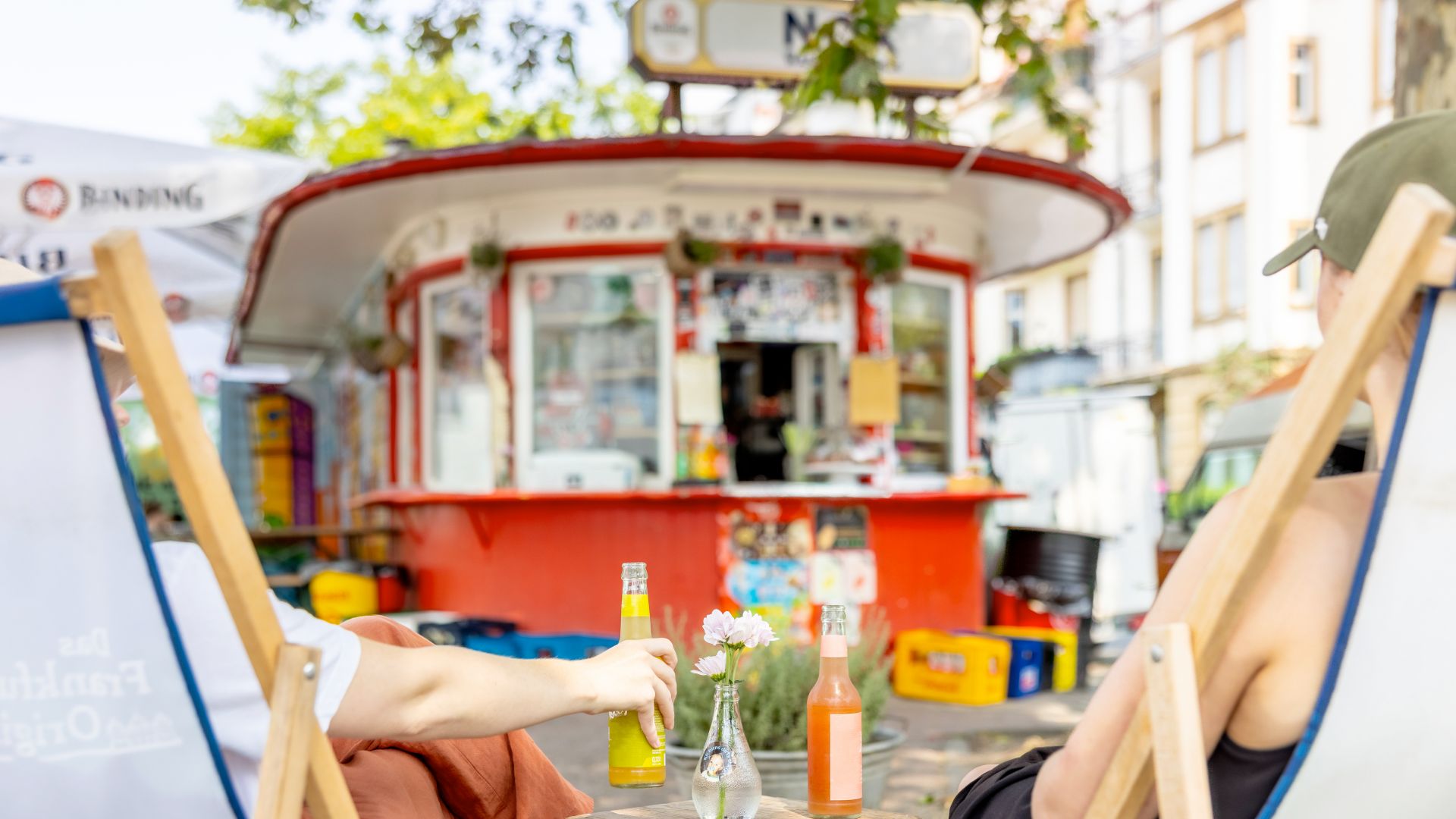 Kiosk in Sachsenhausen
©#visitfrankfurt (David Vasicek)
Kiosk in Sachsenhausen
©#visitfrankfurt (David Vasicek)
'Mainhatten' can do more than just banks and business – the lively neighbourhoods of Bornheim, Bockenheim and Brückenviertel are proof. But there are differences: Bornheim inspires with its diverse Äppelwoi pubs, alternative bars and trendy cafes. The Brückenviertel, the young creative hotspot, is home to delightful stores and great markets such as the 'Markt im Hof' (English: 'Market in the Courtyard'). And thanks to its proximity to the university and numerous pubs, cafes and stages, Bockenheim is particularly popular among students and young people.
Munich: where dirndls and lederhosen take a break
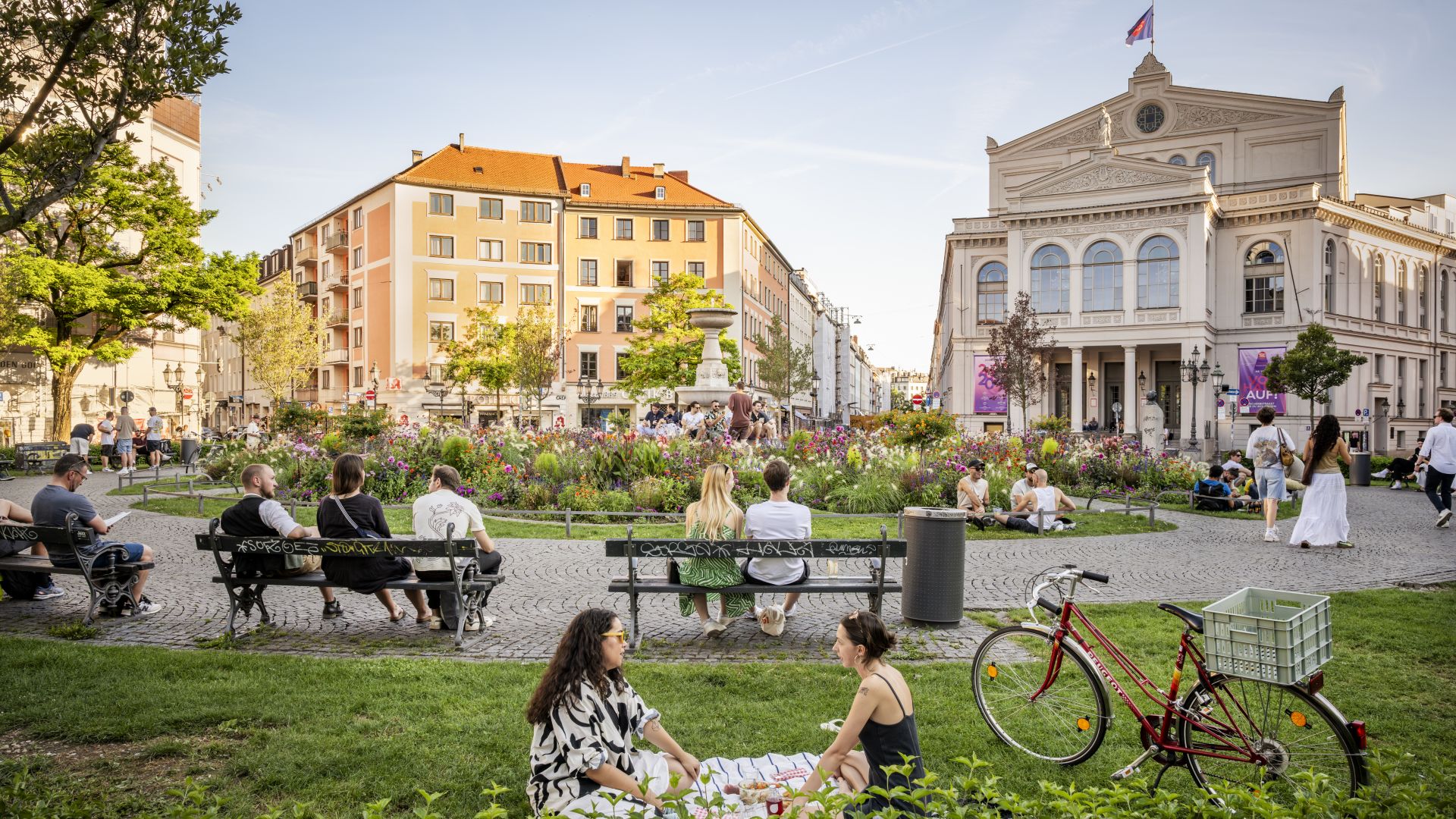 Gärtnerplatz in the Glockenbachviertel in Munich with Gärtnerplatztheater
©DZT (Dagmar Schwelle)
Gärtnerplatz in the Glockenbachviertel in Munich with Gärtnerplatztheater
©DZT (Dagmar Schwelle)
'Münchner Freiheit' is not only a feeling of freedom, but also the name of a cult band and a spot that marks the perfect starting point for a pub or cabaret crawl through Schwabing – a classic. In the Glockenbach district , things get even more hip. When the weather is nice, the area around Gärtnerplatz is almost as busy as the green meadows of the renatured Isar. The Werksviertel at Ostbahnhof contrasts this: where potato dumplings were once produced, there is now creative (night) life.